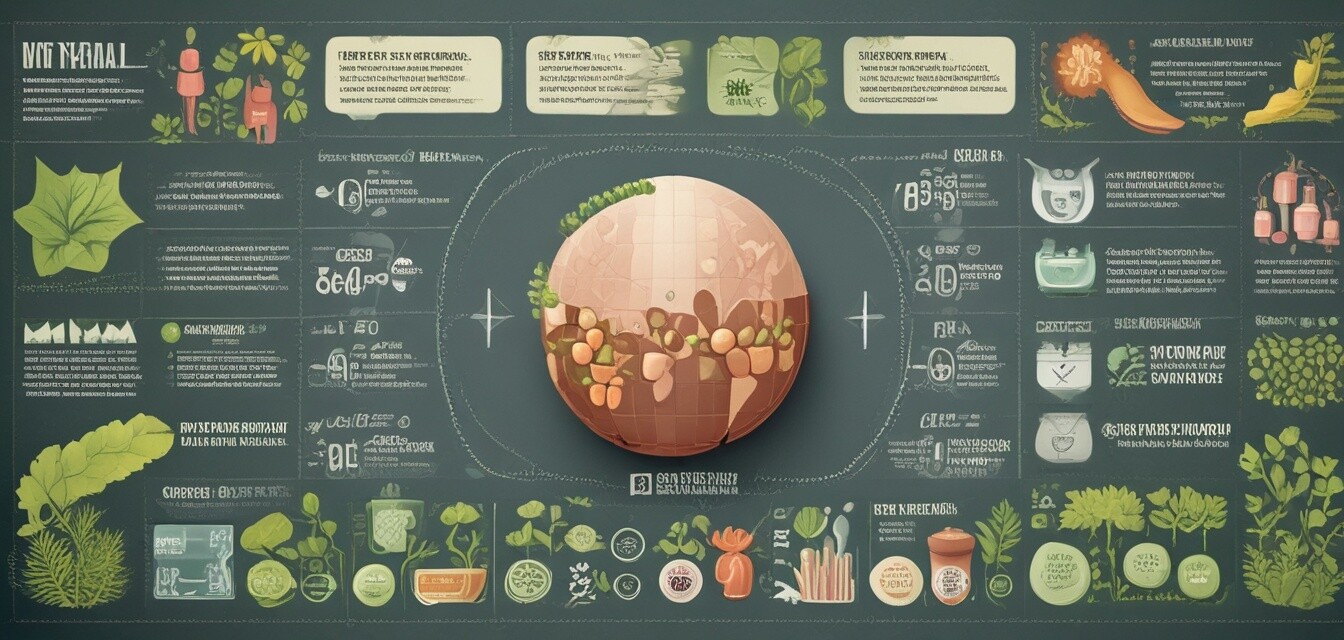
Prenatal vitamins and the impact of environmental toxins
Key Takeaways
- Environmental toxins can pose risks to fetal development.
- Prenatal vitamins contain essential nutrients that may help mitigate these risks.
- Key nutrients like folic acid, iron, and omega-3 fatty acids are crucial for maternal and fetal health.
- Staying informed about environmental exposures is vital for expecting mothers.
- Consulting with healthcare providers about vitamin supplementation is recommended.
As the awareness of environmental toxins grows, so do the questions regarding their impact on prenatal health. Expecting mothers often seek to navigate this complex landscape to ensure their and their baby's well-being, leading many to consider the role of prenatal vitamins. In this article, we will delve into how prenatal vitamins can play a crucial role in supporting maternal and fetal health amidst the backdrop of environmental challenges.
Understanding environmental toxins
Environmental toxins are substances found in our surroundings that can negatively influence health. They can come from various sources such as:
- Air pollutants
- Household chemicals
- Heavy metals (like lead and mercury)
- Pesticides
- Industrial waste
Each of these can impact health during pregnancy, potentially leading to developmental issues for the fetus and complications for the mother.
The role of prenatal vitamins
Prenatal vitamins are specifically designed supplements that provide key nutrients vital during pregnancy. They aim to fill in dietary gaps that may arise due to various factors, including exposure to environmental toxins. Let’s explore the essential nutrients commonly found in prenatal vitamins and their significance:
| Nutrient | Importance |
|---|---|
| Folic Acid | Crucial for the development of the neural tube, reducing the risk of brain and spinal cord defects. |
| Iron | Supports increased blood volume and fetal growth, helping prevent anemia. |
| Calcium | Important for the development of strong bones and teeth in the fetus. |
| DHA (Docosahexaenoic Acid) | A type of omega-3 fatty acid essential for brain and eye development. |
| Iodine | Supports thyroid function, which is critical for metabolism and fetal development. |
Combating the effects of environmental toxins
Prenatal vitamins equipped with the above nutrients contribute to a better overall health profile for expecting mothers, which may help counteract some of the potential harms linked to environmental exposure. While these vitamins are essential, they should complement a well-rounded diet rich in fruits, vegetables, whole grains, and lean proteins.
Emerging trends in prenatal vitamins
The prenatal vitamin market is evolving to include innovative formulations that cater to the unique needs of mothers in today's world. Some emerging trends include:
- Personalized vitamin solutions based on genetic needs.
- Subscription-based vitamin services providing tailored monthly deliveries.
- Increased emphasis on plant-based and gluten-free options.
Consulting healthcare providers
Before selecting any prenatal vitamin, it’s essential for expecting mothers to consult with healthcare providers. They can offer personalized recommendations considering an individual's dietary needs and potential environmental exposures. You can stay informed by exploring our buying guides and understanding various prenatal vitamin options.
Conclusion
The relationship between prenatal vitamins and environmental toxins highlights the importance of ensuring adequate nutrition during pregnancy. While prenatal vitamins are not a cure-all, they serve as a crucial component of a comprehensive approach to fetal health. Expecting mothers should remain vigilant about their environmental exposures and proactively seek ways to support their health and that of their little ones.
Pros
- Provides essential nutrients for both mother and baby.
- May help mitigate the risks posed by environmental toxins.
- Supports overall maternal health during pregnancy.
Cons
- Not all prenatal vitamins are created equal; some may lack necessary nutrients.
- Over-reliance on supplements instead of a balanced diet may occur.
For further information on prenatal health and nutrition, check out our blogs for healthy pregnancy tips and other informative resources.
Stay updated
As research continues to evolve in the field of prenatal nutrition, staying updated on the latest findings is crucial. Regularly visit our News and Trends section for updates on product launches, industry insights, and expert opinions.
